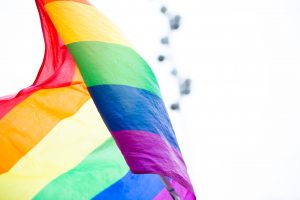In a landmark civil rights case, the U.S. Supreme Court ruled today that existing law protects gay, lesbian and transgender workers from workplace discrimination – a huge win for LGBT equality that The New York Times characterized as “stunning.” 
As our Orange County employment lawyers can explain, the question in this case was whether the provision of Title VII of the Civil Rights Act of 1964 barring discrimination on the basis of sex extends to lesbian, gay and transgender workers. In a 6-3 vote, justices ruled that it does. Justice Neil Gorsuch wrote the 172-page majority opinion, which was joined by Chief Justice John Roberts Jr. and Justices Ruth Bader Ginsburg, Stephen Breyer, Sonia Sotomayor and Elena Kagan. This has the potential to benefit millions of gay and transgender workers.
While previous LGBT rights cases in recent years have been concerned with constitutional law, this new ruling, which covers two sets of cases – Bostock v. Clayton County and Stephens v. R.G. and G.R. Harris Funeral Homes, Inc. – is concerned primarily with statutory interpretation. The first were two lawsuits filed by gay men who alleged they were terminated from their jobs because they are gay. The second was a lawsuit filed from a transgender woman who allege
The position of Trump administration attorneys was that “sex discrimination” was commonly understood in 1964 (when the law passed) to encompass only men and women, not sexual orientation or gender identity. Had Congress intended to extend workplace protections to LGBT employees, they’d have specifically done so.
On the other side of the coin, attorneys working for the employees argued that job discrimination against workers on the basis of being transgender, gay or lesbian must – inherently as a matter of logic – consider the person’s sex.
Workplace Discrimination Against Gay Men
In the Bostock case, a gay man alleged he was fired from a county government program that assists abused and neglected children after he joined a softball league for gay men, which he promoted for the purpose of gaining more volunteers. Despite more than a decade of positive performance reviews by the county, he was fired a short time later after a brief audit that uncovered some misspent funds. The reason given was “conduct unbecoming” of an employee, but plaintiff alleged this was pretense; he was really fired because he was gay.
A federal district court judge sided with the county, finding Title VII doesn’t protect against sexual orientation discrimination – a ruling affirmed by the U.S. District Court of Appeal for the Eleventh Circuit.
This ruling aligned with the U.S. District Court of Appeal for the Second Circuit’s ruling in Zarda v. Altitude Express, Inc. In that case, plaintiff was fired from his job as a professional skydiver after he told a female customer he was gay in order to make her more comfortable about they fact that they were being strapped in together. The woman’s boyfriend later complained to plaintiff’s employer that plaintiff touched her inappropriately and he was fired. Plaintiff insisted he hadn’t touched the woman inappropriately and would never do such a thing and the real reason he was fired was because of his sexual orientation.
While the case was pending, the U.S. Equal Employment Opportunity Commission issued a memo indicating that sexual orientation would be treated as covered under Title VII (already the position of the U.S. Justice Department). Nonetheless, the district court issued a ruling favorable to the employer, who argued homosexuality should not be given protection under Title VII. While the case was being appealed to the Second Circuit, the Trump administration reversed the DOJ’s position on this issue. The Second Circuit affirmed.
Transgender Workplace Discrimination
In the case of the transgender funeral home worker, plaintiff argued she was fired from her job in Michigan after announcing that she was transgender and would begin working in women’s clothes.
Prior to that, she’d worked at the funeral home for six years, with her coworkers describing her as both competent and compassionate. Yet she was fired two weeks later. When asked for a specific reason, the owner of the funeral home expressly indicated it was because plaintiff “wanted to dress as a woman.”
The U.S. Court of Appeals sided with plaintiff, finding job discrimination against transgender workers was barred by Title VII because it would be impossible to fire a worker on the basis of their transgender status without considering the plaintiff’s sex because it inherently involves the change of one’s sex.
U.S. Supreme Court’s Ruling on LGBT Worker Discrimination
The U.S. Supreme Court’s decision aligns with the ruling by the Sixth Circuit, finding Title VII does protect gay, lesbian and transgender workers from being discriminated against on that basis. The ruling was considered a surprise because the makeup of the court has been growing more conservative of late. Gorsuch and Roberts are both conservative justices. Plus, the
Although the majority conceded that sexual orientation and sexual identity were not on the minds of the legislature that passed the civil rights law. However, if a female worker can be fired for dating females – but a male worker will not be fired for dating females – that is gender discrimination.
Prior to this ruling, LGBT anti-discrimination laws were sporadic. A total of 23 states – including California – as well as some 400 cities banned LGBT discrimination, with 21 of those specific to employment.
This ruling will supersede any other state or local rule that has allowed discrimination against LGBT workers.
Contact the employment attorneys at Nassiri Law Group, practicing in Orange County, Riverside and Los Angeles. Call 949-375-4734.
Additional Resources:
Bostock v. Clayton County, June 15, 2020, U.S. Supreme Court
 Orange County Employment Lawyers Blog
Orange County Employment Lawyers Blog

